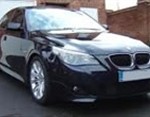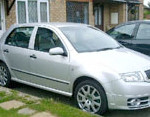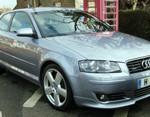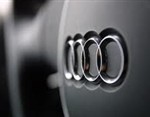After hearing a lot of stories….
…and reading a lot (sometimes a lot of rubbish) on car forums, we decided to explore and learn, first-hand, what running a car on Bio Diesel would be like. The experiment would be all the more interesting if the car were tuned (by Angel Tuning, of course).
Angel Tuning has therefore been running their highly-tuned Alfa 156 2.4 JTD on various mixture ratios of “White Diesel” and “Bio Diesel”, after a visit to Bob and Dick Bio Fuels.
What is F.A.M.E. Bio Diesel?
F.A.M.E. is the smart name used for cooking oils – Fatty Acid Methyl Esters; the fuel is going to be referred to, on these pages, as ‘FBD’.
How is FBD Processed?
The process is pretty straightforward: firstly, the waste oil is brought in, using large vats; it is then run off into smaller more manageable quantities. The oil is then heated and agitated, a sample taken to find the PH level. The PH level indicates how much Sodium Methoxide is required to clean it.
The Sodium Methoxide mix is then added and the whole mixture is agitated again for a few hours. It is then left to settle; the debris is drawn off.
Finally, the mix is then ‘misted’ with water, which will then sink – taking any remaining particles with it. The mixture is then redrawn into fresh barrels and ready for use.
For straight Bio Diesel, the price is currently circa 78p per litre. For a 75/25 mix of Bio and White Diesels, the price is 80p per litre.
Can I Use It In My Car?
Pre-1992 Vehicles
Alas, the answer is no. All pre-’92 cars have rubber hoses in the fuel lines, which are not compatible with Bio Diesel.
Post-1992 Vehicles
Yes, most definitely.
Note: with Common Rail Diesels and VW PD Engines, there is an issue with cold starting during the winter. It is suggested that during the colder months, the 75/25 mix is used, to allow the glow plugs to do their job, sometimes two or three times before starting.
Do I Need To Change Anything?
No, the only thing you must be prepared to do, is to change the fuel filter after the first 1,500 miles, as FBD will clean the system thoroughly.
How Do I Get FBD?
This is the tricky part. It is not widely or easily available currently, although Angel Tuning are trying to put together a network of suppliers.
During our testing we used Richard and Bob of DB Biofuels in Bidford Upon Avon. They can be contacted via Sales@dbbiofuels.co.uk or mobile phone (Richard 07976 710 206 / Bob 07768 081653)
Further Information
Channel 4 have an excellent feature on Bio Fuels on their website
Please note that their advice on whether it can be used on your car relates to warranty issues, rather than whether it will work or cause any damage at all.
Finally, we are not promoting the use of FBD, nor are we working with or promoting BD Biofuels. However, it is only fair to give our thanks to our suppliers for their time and trouble, in talking to us and giving us the information we asked for.
Angel Tuning Test
50/50 Bio/White diesel.
The first thing we noticed was that the engine started at the first attempt, as usual with conventional fuel, which was encouraging.
After travelling for 50 miles, as the fuel was getting really ‘agitated’ in the tank, we assumed we were running on an even mixture so started to open the car up. The power delivery was as usual, but it became apparent that the car pulled in a smoother way at the top of the range, 3,800rpm upwards. Power was also delivered past the usual 4,500rpm and up to 5,000. We also noticed that – while there was no difference lower down (say, 0-60mph) – the vehicle was much faster on a longer straight, by some 5-10 mph.
The other thing we started to notice was…. the cars behind: there was virtually NO smoke. The car we were testing used to smoke, but not with Bio Fuel. We even arranged for another car to follow our test vehicle, and it was confirmed: the Bio cleaned the system thoroughly.
Fuel economy did suffer on the test through; yet, that was only by 20 miles to the tank content, on estimate. We were also really putting the car through its paces, so it was not surprising.
The only thing of note against this mix was this: on a cold wet morning the car took a fraction of a second longer to start than it usually does.
90/10 Bio / White diesel
After the roaring success of the first test we ran the car right down and refilled with Bio.
The results were pretty much as before, with an even better pull higher up the rev range.
Conclusion
At 78p per litre, no smoke and smoother pull we will continue to use this when we can. Availability is an issue and we have had to revert to white diesel on occasion. We have noticed the difference.






